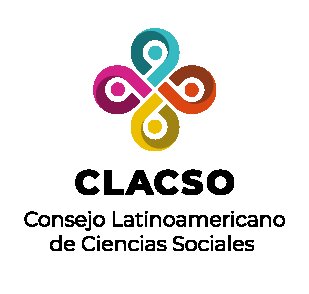Authors
Abstract
Objective. To analyze the role of the grandparents from the grandchildren’s perception as a socializing agent in the relationships that exist between these two generations. Methodology. The investigation was oriented on a quantitative descriptive transversal approach, since it was based on data collection methods with numerical measurement. Results. In analyzing grandparents as socializing agents, the following indicators are included: approach, communication, type of communication and language comprehension, family integration, activities undertaken with grandparents and their frequency. Conclusions. first of all, the role of the maternal grandmothers is highlighted because they tend to have more intimate and warm relationships, they tend to act as substitute mothers; secondly, closely followed by the maternal grandfather with whom grandchildren hold great confidence and contact, and this is seen as a source of support to the needs and the empathic listening given because of their experience.
References
Erdheim, M. (1992). Sobre la desritualización de la adolescencia por la aceleración del cambio cultural. San José de Costa Rica, Costa Rica: Goethe Instituto.
Freixas, A. (1995). Mujer y envejecimiento en una sociedad cambiante. Madrid, España: Almúñecar.
Fuentes, A. (2007). De abuelitas y abuelitos, y otros ángeles benditos. Bogotá, Colombia: Editorial Diana.
Hernández, R. (1997). Metodología de la investigación. Ciudad de México, México: McGrawHill.
Jiménez, A. (2008). Panorama demográfico, el proceso de envejecimiento de la población en América Latina y el Caribe. Cartagena, Colombia: CEPAL.
Kopera, F. y Wiscott, R. (2000). Continuidad intergeneracional: transmisión de creencias y cultura. Nueva York, USA: Springer.
Mead, M. (1971). Cultura y compromiso. Buenos Aires, Argentina: Granica.
Margulis, M. y Urresti, M. (1996). La construcción social de la condición de la juventud. La Juventud es más que una palabra: ensayos sobre cultura y juventud. Buenos Aires, Argentina: Editorial Biblos.
Neugarten, B. y Weinstein, K. (1964). El abuelo americano cambiante. Diario del matrimonio y la familia. Chicago, USA: Universidad de Chicago.
Pinazo, S. (1999). Significado social del rol del abuelo. Revista Multidisciplinar de Gerontología, 9, 169-176.
Pinazo, S. y Sánchez, M. (2005). Gerontología, actualización, innovación y propuestas. Madrid, España: Pearson educación S.A.
Ramírez, G. (1999). Envejecer no es deteriorarse. Bogotá, Colombia: Editorial Panamericana.
Rodríguez, A. y Español, W. (2013). Vivir es convivir. En A. Burgos et al. Instituciones educativas vivas (pp. 177-194). Tunja, Colombia: Fundación Universitaria Juan de Castellanos.
Sánchez, M. (1992). Una sociedad para todas las edades. Granada, España: Instituto de Mayores y Servicios Sociales (IMSERSO).
Rottenberg, J. (2000). Los nietos nos cuentan. Buenos Aires, Argentina: Galerna.
Triadó, C. y Osuna, M. (2005) Las relaciones abuelos-nietos. Madrid, España: Universidad de Barcelona.

 PDF (Español)
PDF (Español)
 FLIP
FLIP




























